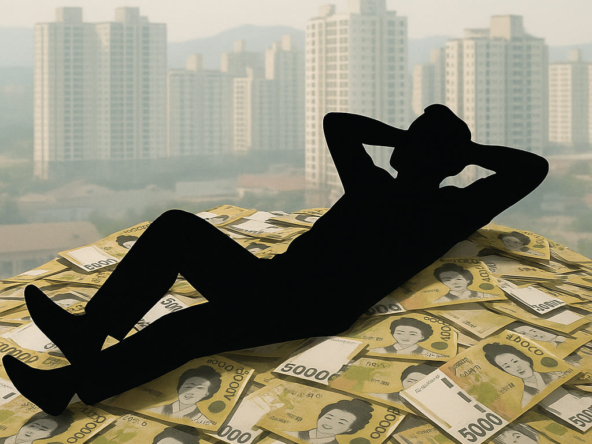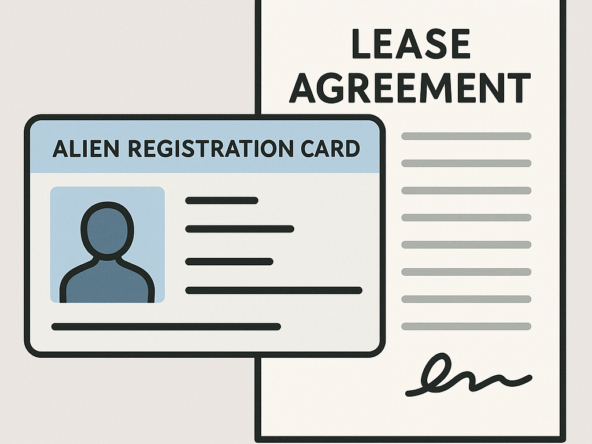Seoul is an incredible city and is the capital of South Korea. It boasts a variety of attractions that are both cultural and modern, making it one of the most fast-paced cities globally. In particular, it is known for its many markets that attract business people worldwide. As a result, the real estate market in Seoul is also in much demand. For example, Seoul high rise apartments are considered great luxury accommodations. However, when you are renting in Seoul, there are certain things that you should be aware of. This includes tenant rights and legal protections that the government has set out. These laws will help make your journey as a tenant much easier and more convenient. As a result, we recommend that you be aware of them to take advantage of them and preserve your rights. This article will dive into tenants’ rights and legal protections so you can understand them comprehensively. Without further delay, let’s dive in.
Tenant Rights and Legal Protection
You must understand the rights and legal protections available to you as a tenant. This will help you determine whether these accommodations are suitable for you. Furthermore, you will be equipped to deal with any issues or disputes. After all, disputes between landlords and tenants can occur during the lease period. These rights may also apply to other accommodations, like Mapo Seoul apartments. Here are some rights and protections you should be aware of when renting in Seoul:
Limit on Monthly Rent Increase Upon Renewal
The government has set regulations regarding landlords increasing the rent when the lease is due for renewal. According to these regulations, they cannot increase the rent by more than 5%. This rent increase can also be done only once a year. Furthermore, landlords are required to provide sufficient notice to the tenants if a rent increase does occur. This notice period is typically 90 days. These laws are to ensure that a tenant does not experience the hassle that naturally comes with changing accommodations. However, it is essential to note that real estate companies have no established cap on monthly rent increases.
Right to Contract Renewal
The Act on the Lease of Urban Land and Buildings states that tenants have a right to contract renewal when it expires. This renewal right is valid if the tenant informs the landlord within two months of expiry. Additionally, this right may become invalid if the lease terms are violated. The tenant being a corporate entity does not affect this right compared to the previous protection that was discussed. However, there are a few conditions under which the landlord may not renew the contract, but these may be justifiable. One of the main reasons is if the landlord personally intends to move into the property or if it is required for personal use, such as a family member moving in. Other reasons include if major repairs, construction, or repairs are needed. If the landlord does cite that they plan to move in as the reason for contract denial but then do not move in, this is unlawful. They are then obligated to compensate the tenants for any damages caused to them. If a dispute occurs, both parties may discuss and negotiate to help resolve the issue. However, if the problem isn’t resolved, both parties may take the matter to court for legal action.
Priority Refund Right
Tenants in Seoul have the primary right to get their deposit refunded when their lease ends. Landlords are obligated to refund the deposit. Landlords must return the deposit within two weeks after the lease ends. They can do so minus any deductions. However, these deductions must be reasonable and itemized so tenants can see what deductions have been made. If landlords fail to provide the deposit, the government ensures a refund of up to 50 million South Korean won. However, if a tenant wants to secure insurance for amounts exceeding this, they need to enroll in the services of an insurance firm or hire a legal professional specializing in apartment rentals. Locally, these legal professionals are known as judicial scriveners.
Leasehold Registration
If a tenant has not reclaimed their deposit by the move-out date, this detail can be noted in an official registry. This can result in the landlord being penalized since South Korean law regulates the handling of security deposits. As a result, the landlord can be charged with interest on the deposit until it has been returned to the tenant. Furthermore, this can also result in challenges for the landlords when seeking a new tenant. This is because this leasehold registration may be reflected in the official records and can become an issue for the landlord later.
Lease Agreement Continuation for New Landlords
Another excellent tenant right the government provides is the lease agreement continuation after a property ownership change. This means that if the landlord sells the property during an active lease, the terms that were agreed with the previous owner will continue with the new landlord. This allows the lease to continue for the new tenant without significant disruptions. These terms will continue to stay during the period of the lease. Furthermore, both the previous and new landlords must inform the tenant about the change in ownership within 30 days of the transfer. The security deposit and interest are also transferred between the landlords, and the tenant’s right to the deposit is unchanged.
Right to Proper Maintenance and Repairs
Landlords are required by law to maintain the property in good condition. This is to ensure that the tenant can live comfortably. As a result, the landlord must ensure any repairs are dealt with as soon as possible. These repairs include issues related to plumbing, heating, electricity, etc. Furthermore, when the landlord visits to check for repairs, the tenant has a right to privacy. This means the landlord must inform the tenant 24 hours before they visit the property for inspection and repairs. However, the landlord may not need to follow this notice period if there is an emergency.
To sum up
Seoul is a beautiful city that has become one of the most in-demand cities in the world. As a result, the accommodations and real estate within the city are much in demand. For example, City Hall Seoul apartments are a great option. This includes renting the various kinds of apartments that the city offers. However, before renting in Seoul, you need to be aware of certain tenant rights and legal protections. We have discussed them in the above article. There is a limit on how often and how much landlords can increase rent upon renewal to ensure minimal tenant hassle. Tenants also have a right to contract renewal upon expiry if certain conditions are met. Landlords must provide tenants with their deposit when the lease expires, or this can become an issue for them since it will appear in the official records. If the landlords of a property change, the tenant has the right to continue on the lease terms until it expires while also being informed of a change in ownership. Tenants also have the right to have proper maintenance and repairs of the property they are renting, and landlords must ensure they take care of any fixes immediately.
We hope this article has been insightful and has helped you understand your tenant rights and legal protections when renting an apartment in Seoul. Thank you for reading!




